ASEAN–Japan Collaboration in Human Resource Development:
Creating A Sustainable Research & Education Exchange Network
13 February 2015, Singapore
Photos from the Symposium—
The Symposium, on 13 February 2013, was followed by a networking reception. All the details about the event are at the bottom of the page.
ASEAN–Japan Collaboration in Human Resource Development:
Creating A Sustainable Research & Education Exchange Network
Symposium 15:00-18:00, followed by networking reception 18:00-20:00
After almost two decades, globalization is a phenomenon that is now rapidly changing the landscape of competition and collaboration among universities around the world. This in part reflects the recruiting patterns of businesses and industries that are seeking the more and more of the best and brightest from around the world, regardless of the company’s country of origin and regardless of the students’ nationality.
This symposium addressed the challenges and opportunities for Japanese universities and ASEAN universities in collaborating with Japanese businesses to establish a unique network of human resource development that might combine the growing collaborative ties between Osaka University and ASEAN universities in education and research with Japanese companies’ global recruitment strategy. In the course of the symposium, the speakers from Osaka University, ASEAN universities and Japanese businesses each identified their practical challenges (needs) and endeavours to address them in the effort to share information, identify common ground and areas of cooperation that would optimizes the resources available to each party to lay down the foundation for a network for sustainable human resource development.
The speakers from Osaka University, ASEAN universities and Japanese businesses were asked to consider the following questions from their institutional perspective:
a) What is the role of universities today and what is expected of them?
b) What kind of education and skills are required in today’s world? (or, more specifically, in Japan’s business and industries today?)
c) What is the advantage of double degree programmes between Japan and ASEAN universities?
d) What are the needs of your organisation (universities and companies) in terms of education, research and human resource development and how are you obtaining them? (internships, training programmes and degree programmes, scholarships, research funding, etc.)
e) What do you most expect (in terms of cooperation and collaboration) from the others?
Format:
There were three sessions with a panel discussion at the end. There were two or three speakers each from Osaka University, ASEAN universities and Japanese businesses.
Background:
The idea for this career fair emerged as part of the Osaka School of International Public Policy (OSIPP), Osaka University’s student exchange programme under the aegis of “Reinventing Japan” to strengthen Japan’s international student exchange activities that foster better relations between Asian countries). At the time, there was a need for Japanese universities to provide better exit strategies for overseas students studying in Japan or travelled to Japan as exchange students, and OSIPP sought to connect to the need of Japanese companies to recruit more internationally-minded talents in order to ensure successful adjustment to an increasingly globalized operating environment and to sustain their global competitiveness.
This initiative has acquired a new engine within Osaka University since the establishment of the Center for the Advancement of Research and Education Networks in Asia (CAREN) project spearheaded by Graduate School of Engineering, Graduate School of Science, Graduate School of Engineering Science and the Graduate School of Information Science and Technology this year, in collaboration with the individual ASEAN universities and the ASEAN University Network in Bangkok. CAREN’s mission is to create a global ‘campus’ for Osaka University to nurture future talents that can bridge and buttress relations between Japan and ASEAN, and the ASEAN Career Fair offers the platform for the fruitful collaboration with Japanese businesses and industries in this endeavour.
Launched as an official 40th Anniversary of ASEAN–Japan Friendship and Cooperation and the “Reinventing Japan” (Type A-II, Osaka University) in 2013, the 3rd ASEAN Career Fair with Japan is promoted by:
—Osaka School of International Public Policy (OSIPP), Osaka University, Japan
—Osaka University Center for the Advancement of Research and Education Exchange Network in Asia (CAREN)
—ASEAN University Network
With the aid of participating universities and organizations that include:
—In Singapore: National University of Singapore, Nanyang Technological University, Singapore Management University;
—In Thailand: Chulalongkorn University, Mahidol University, Thammasat University, Chiang Mai University;
—In Indonesia: Bandung Technological University, University of Indonesia, Gadjah Mada University Syiah Kuala University, Airlangga University;
—In Malaysia: University of Malaya;
—In the Philippines: University of the Philippines, De La Salle University, Ateneo de Manila University;
—In Cambodia: Royal University of Phnom Penh; Pannasastra University of Cambodia;
— In East Timor: National University of Timor-Leste
And support from participating Japanese companies that include:
—Mitsubishi Corporation, Fujitsu Ltd., Kozo Keikaku Engineering Inc., Yamato Transport Co., Nippon Express, (to be decided: Bloomberg, Deloitte, Mizuho Financial Group, Toshiba Asia Pacific Pte Ltd, Sumitomo Chemical Singapore Pte. Ltd., Sumitomo Mitsui Banking Corporation)
|
Check out the video from the 2014 ASEAN CAREER FAIR with JAPAN Visit the ASEAN CAREER FAIR with Japan website: http://asean-career.com/ Join ASEAN CAREER FAIR with Japan on Facebook: https://www.facebook.com/ASEAN.Japan.Career Follow ASEAN CAREER FAIR with Japan on Twitter: https://twitter.com/CAREERS_FAIR |
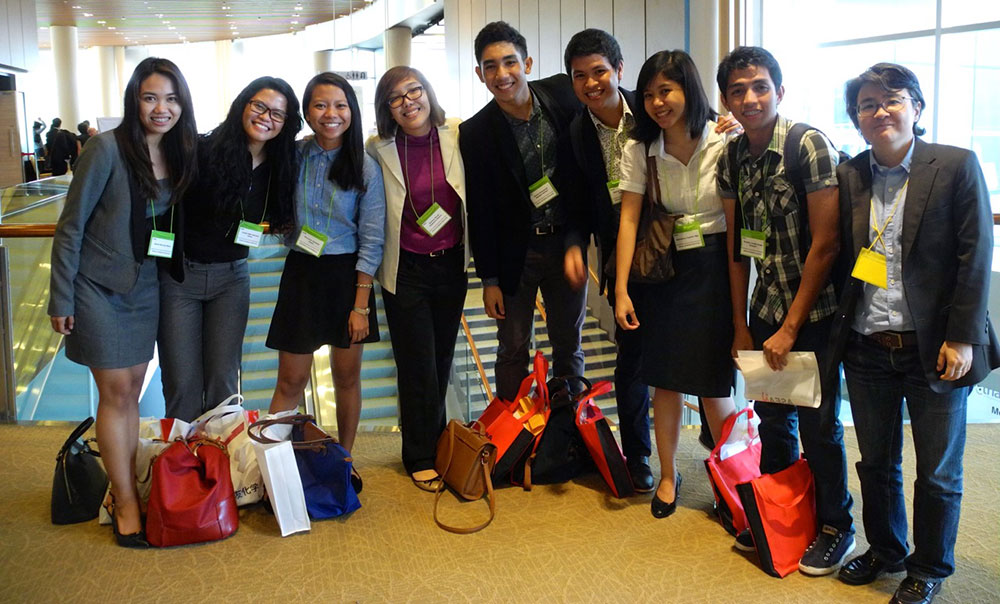
Students from Ateneo de Manila University, the Philippines with Prof. Satoh from Osaka University (far right) at the 2014 ASEAN CAREER FAIR with Japan.


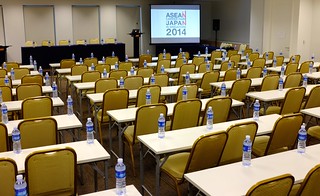
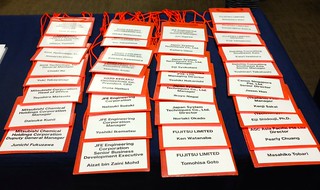
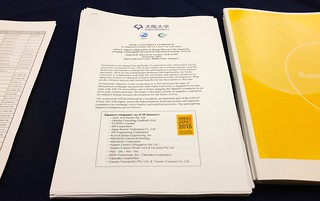
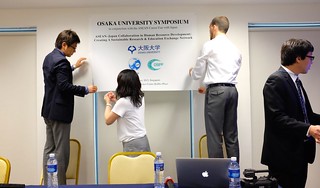
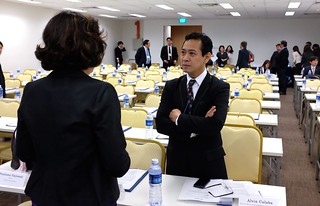
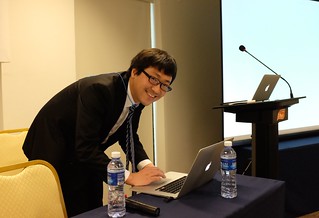
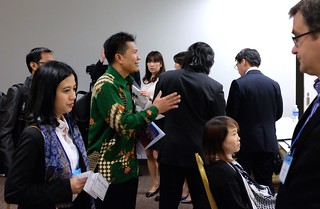
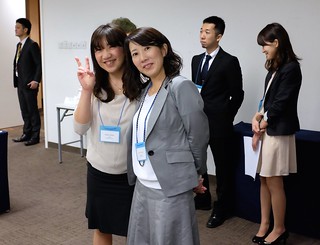
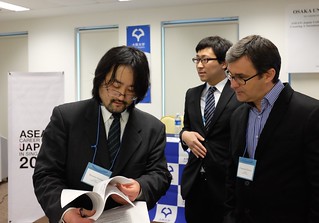
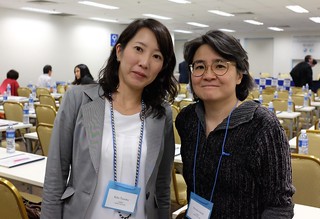
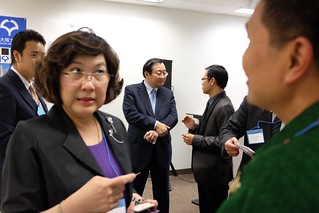
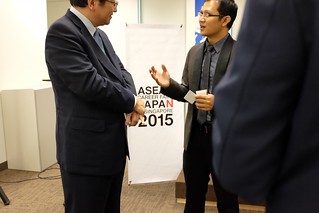
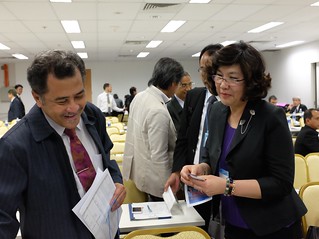
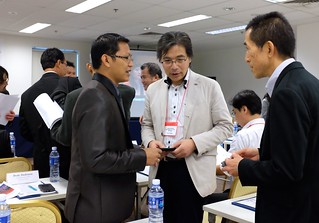
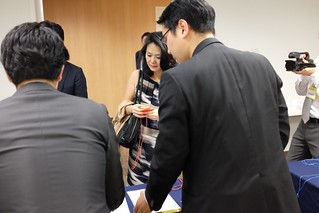
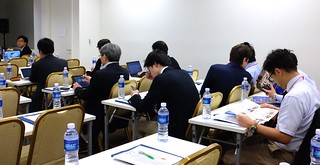
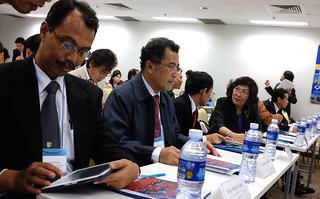
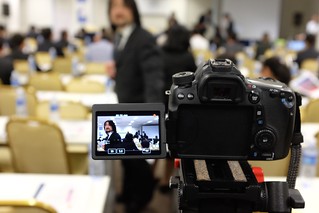
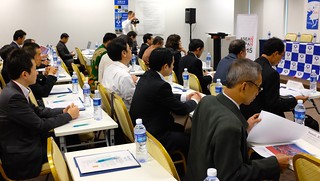
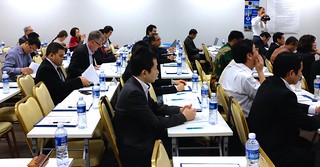
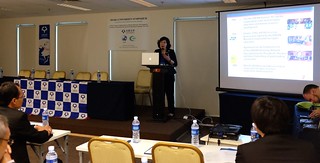
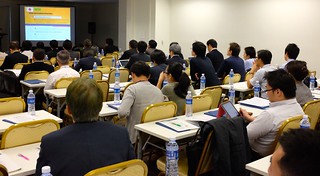
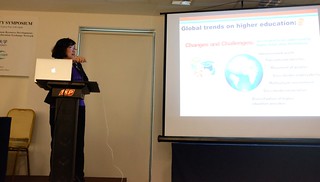
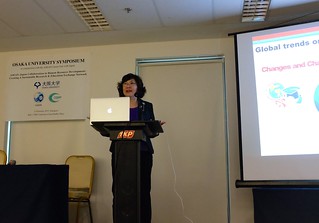
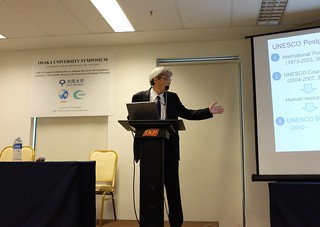
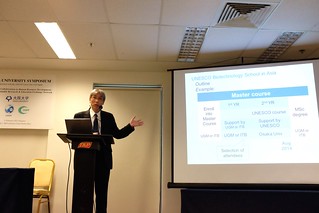
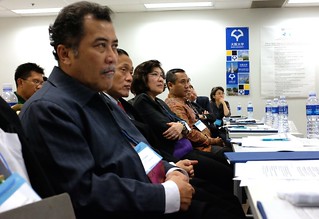
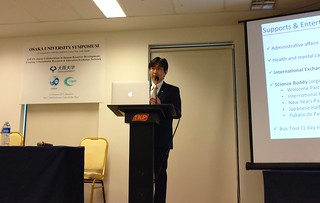
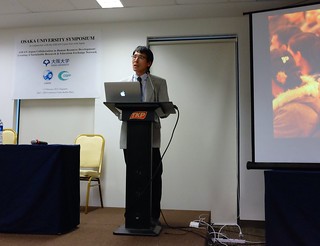
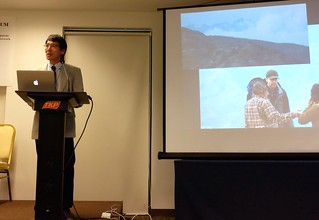
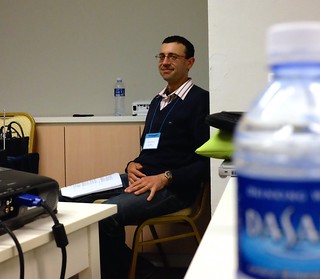
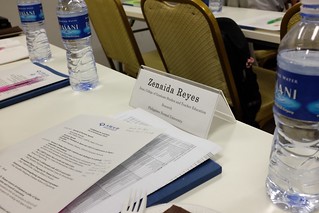
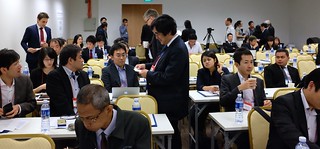
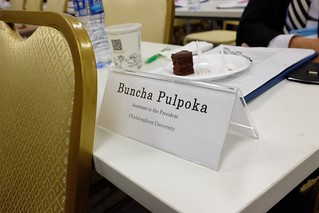
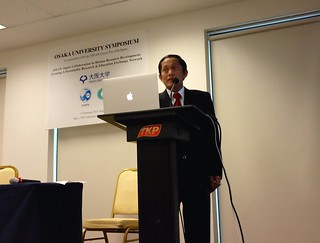
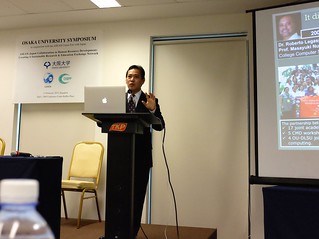
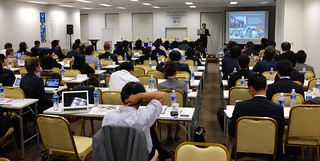
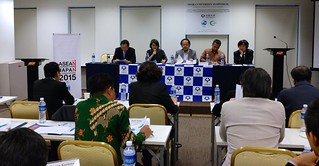
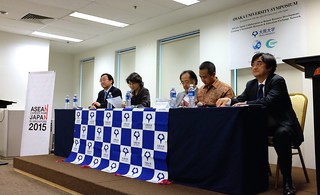
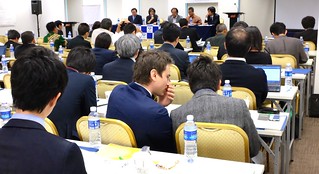
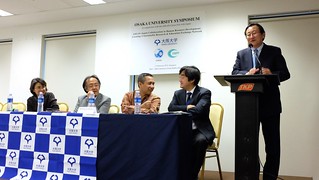


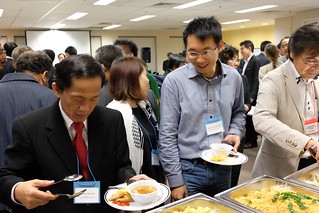
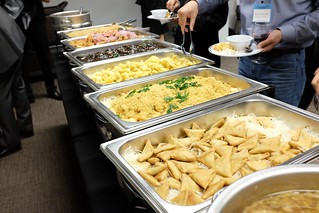
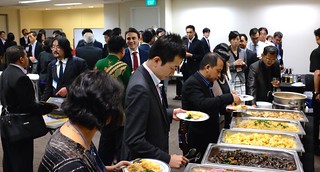
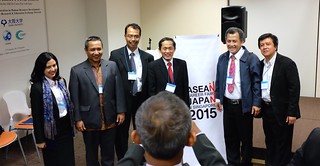
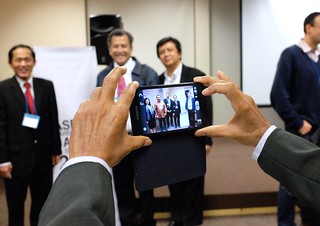
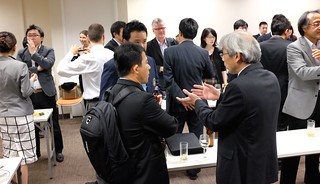
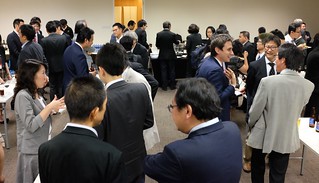
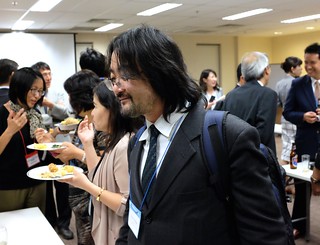
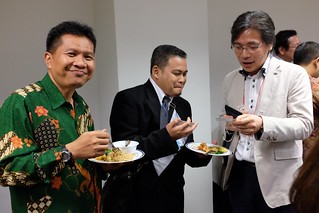
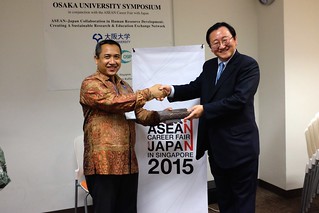
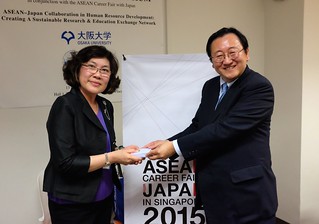
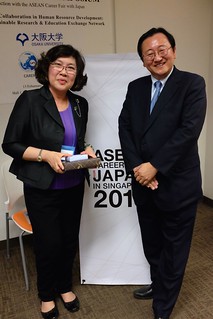
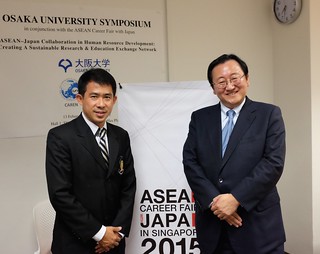
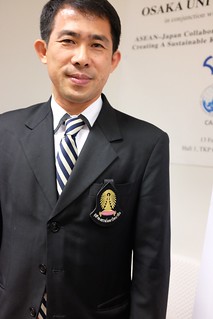
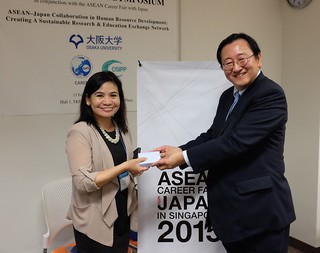
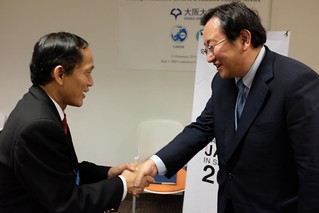
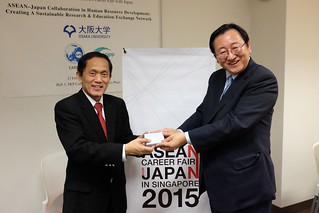
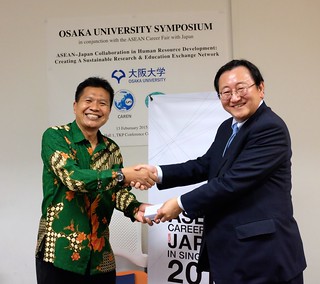
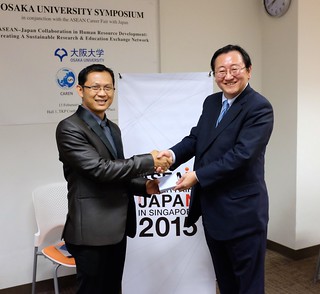
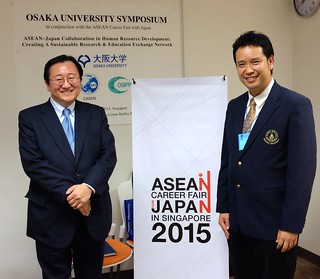
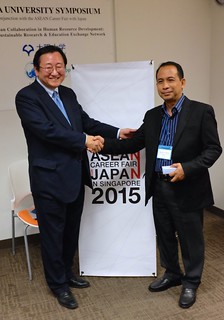
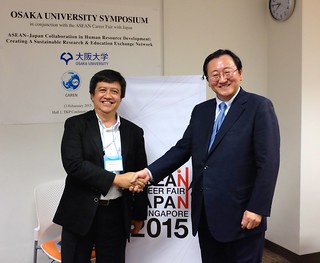
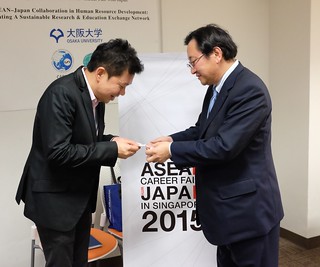
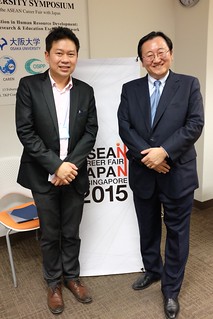
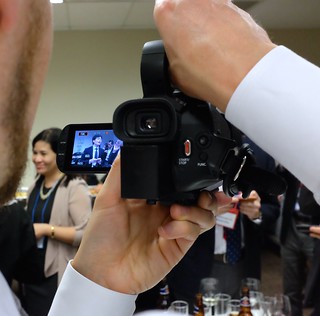
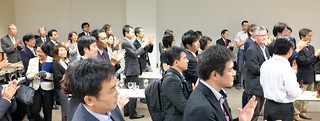
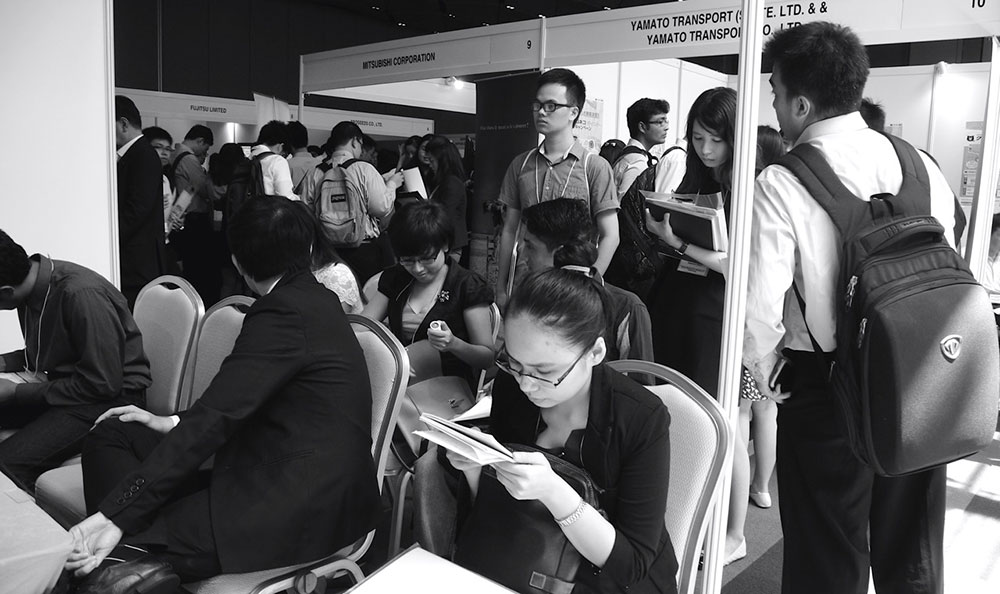

Comments are closed.